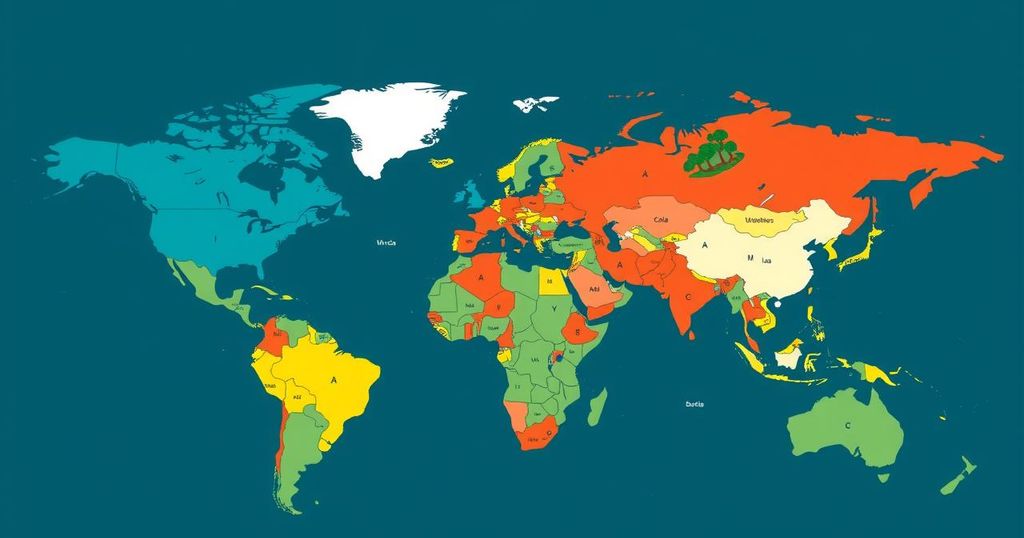Richer Countries Compensate Poorer Nations for Climate Change Impacts
Richer countries are beginning to compensate poorer nations for climate change damages. Cyclone Freddy’s devastation in Malawi highlights the urgent need for loss and damage funding, a new mechanism to aid those affected by climate disasters. Wealthy nations have pledged about $720 million, though this is seen as insufficient to address the escalating crisis. As countries negotiate at COP29, the importance of accountability from developed nations grows.
In 2023, floodwaters inundated the home of Christopher Bingala in southern Malawi due to Cyclone Freddy, a record-breaking tropical cyclone. As a subsistence farmer, he faced immense challenges after losing not only his home and livestock but also his means of sustenance. Fortunately, he received a payment of approximately $750, which enabled him to build a new home and relocate to a less flood-prone area. This payment is part of a new initiative known as “loss and damage” compensation, designed to aid low-income countries significantly affected by climate change, despite their minimal contributions to global pollution. Wealthier nations have pledged about $720 million to this fund, yet experts caution that this amount may be insufficient given the escalating severity of climate-related disasters.
The devastation wrought by Cyclone Freddy led to the displacement of over 650,000 individuals in Malawi, with the country experiencing half a year’s rainfall in just six days. Many families faced food shortages, with Bingala recounting dire times when they consumed deceased animals due to a lack of resources. Following temporary shelter in camps, Bingala and others received cash payments from the Scottish government, the first to allocate funds for loss and damage. This innovative program allows recipients to address immediate needs by either rebuilding their homes or investing in agricultural inputs.
As nations negotiate climate finance packages at the COP29 summit in Baku, Azerbaijan, calls for accountability from developed nations due to their disproportionate emissions continue to grow. Prime Minister Philip Davis of the Bahamas emphasized the moral obligation of wealthier countries to support those most affected by climate change, stating that such crises do not remain confined to national borders. The overarching aim remains to establish a reliable framework that supports affected low-income nations amid increasing climate-related financial burdens.
Urgent needs for loss and damage funding have risen sharply, with some estimates suggesting potential costs could reach $250 billion annually by 2030. Prime Minister Davis illustrates the financial strain climate disasters place on developing nations, noting a significant increase in national debt following natural calamities. Furthermore, many contending that funding should extend beyond immediate disaster recovery to encompass relocation efforts for communities threatened by rising sea levels and the preservation of cultural and ecological resources.
Ultimately, the consequences of inaction pose a significant risk not only to affected nations but also to the broader international community. As practitioners of climate justice continue to advocate for equitable compensation, the pathway forward hinges on cooperative efforts to address these urgent and escalating needs.
The concept of “loss and damage” compensation has emerged in response to the disproportionate impact of climate change on low-income countries, which contribute minimally to global emissions. In the wake of increasing natural disasters, wealthier countries are recognizing their responsibility to support those struggling from climate-related damage. The COP29 summit is pivotal in negotiating the financial frameworks to ensure fair distribution of funds aimed at aiding developing nations.
The implementation of loss and damage compensation marks a significant step towards addressing the financial burdens that climate change inflicts on poorer nations. Despite initial pledges totaling approximately $720 million, the reality of escalating climate-related disasters necessitates a more robust and sustained commitment from wealthier countries. Moving forward, the international community must prioritize equitable financial support to fulfill a collective responsibility for climate action and mitigation.
Original Source: www.upr.org




Post Comment